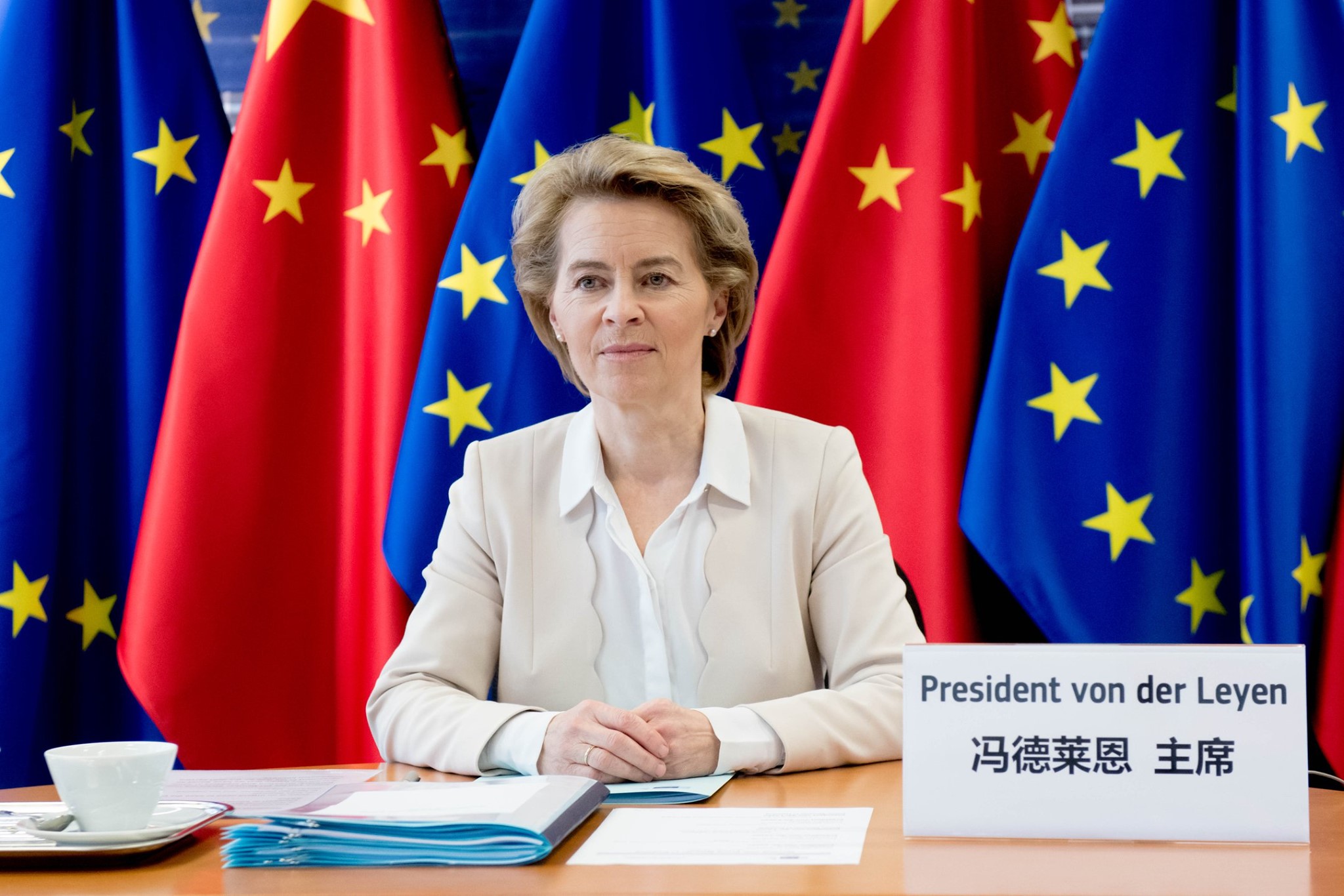Because Le Monde doesn’t see a war between the EU and China

The EU Commission is now focusing on de-risking, away from the technological decoupling that the United States has initiated with China. The article from the French newspaper Le Monde
Europeans' desire to reduce their growing trade dependence on China will be one of the topics discussed at the Beijing summit on 7 and 8 December. He writes Le Monde .
The figure is impressive and has been obsessing Europeans for a few months: 400 billion euros. It is the European Union's trade deficit with China in 2022, "the highest in history", as Commission President Ursula von der Leyen underlined in a speech in Berlin on 16 November. “In 2019 it was only 180 billion euros: its rapid growth is a cause for concern,” analyzes Sébastien Jean, specialist in the subject at the Conservatoire national des arts et métiers.
Above all, this deficit illustrates a paradox: at a time when Europeans seek to reduce their dependence on China, they have never been so closely linked to it. This topic will be one of those on the agenda of the EU-China summit to be held on 7 and 8 December in Beijing, in a context of growing tensions between the two parties and geopolitical uncertainties.
In recent months, the leaders of the Old Continent have made a series of visits to Beijing and strong statements. “Mutual trust has been undermined,” the EU High Representative for Foreign Affairs, Josep Borrell, said on 13 October. The EU and China need not fear "difficult discussions", Thierry Breton, Commissioner for Internal Market, said on 10 November. “Europe is taking a much more aggressive stance,” said Laurent Malvezin, co-founder of Sinopole, a think tank on the Chinese economy.
On September 13, the Commission launched an investigation into the country's subsidies for electric cars. Given the size of the market, this will likely be the largest investigation in its history,” notes Philippe Dauba-Pantanacce, head of geopolitical research at Standard Chartered. Others could follow, for example on wind turbines.
Leader in the supply of goods
Let's go back to the 400 billion euro deficit. “They are the deliberate result of Chinese policy,” criticized Ursula von der Leyen on November 16, referring to the Middle Kingdom's massive subsidies for certain sectors and industrial overcapacity. “Despite all the talk about rebalancing towards consumption, the Chinese economic model remains largely focused on production, which is highly supported,” explains François Chimits, researcher at the Mercator Institute for China Studies. As a result, Xi Jinping's country is exporting its imbalances – and therefore its low-cost subsidized products – to the rest of the world.
And to the detriment of its partner industries. Already in the early 2010s, the European solar panel industry was wiped out by imports of cheap Chinese panels. “Today Europe also depends on China for rare earths and minerals essential for the green transition,” adds Elvire Fabry of the Institut Jacques Delors. And Beijing remains by far our main supplier of goods."
However, this dependency varies from country to country. “First of all, it's a German story,” says Agathe Demarais of the European Council on Foreign Relations, an independent think-tank. Indeed, our neighbors' exports to the Middle Kingdom represent the equivalent of 3% of their gross domestic product – that is, double ours – and 20% of the revenues of its industrial giants, especially the automotive ones. An example: On Thursday 30 November, Mercedes-Benz and BMW announced the creation of a joint venture to build a common charging network in the country, their largest market, in the hope of maintaining control. “Trade relations are also strong between China and Central Europe, but much less so with Southern Europe,” adds Sébastien Jean.
Trade defense tools
Aware of these dependencies, the Commission now focuses on de-risking, away from the technological decoupling that the United States has initiated with its great rival. In June it presented its "economic security strategy", aimed at strengthening controls on foreign investment and exports of critical technologies. This will strengthen the panoply of trade defense tools put in place since 2019, when the EU recognized China as a “systemic rival”. “Europe has undergone a real paradigm shift, breaking with rigid ordoliberalism,” observes François Chimits.
In this context, companies operating in China are "concerned about the unpredictability demonstrated by the communist government after the Covid-19 pandemic", summarizes Jean-François Di Meglio, president of the independent research center Asia Centre. Some are holding on to the Chinese market, such as the German auto industry and the French luxury goods sector. Others have embarked on a diversification strategy to reduce their dependence. According to a recent survey by the European Central Bank, 42% of EU-based multinationals plan to move their supplies to “friendly” countries in the next five years. Two-thirds cite China as a potential source of problems in this area.
Will they go further? “The difficulty lies in the fact that member states do not have an aligned position on this issue: this significantly complicates the common de-risking strategy,” says Agathe Demarais. “Furthermore, capitals must agree on the industrial and competitiveness model that the EU must follow to make progress on these issues,” adds Elvire Fabry.
At the summit on 7 and 8 December, the Europeans will however try to make the Chinese authorities understand that their economic security policy does not mean aggressive protectionism towards China and that they favor dialogue without aligning themselves with the United States. “Beyond this, it is likely that nothing very concrete will come out of these meetings,” deplores Jean-François Di Meglio.
This is a machine translation from Italian language of a post published on Start Magazine at the URL https://www.startmag.it/mondo/ue-cina-guerra-commerciale-le-monde/ on Thu, 07 Dec 2023 06:29:38 +0000.
